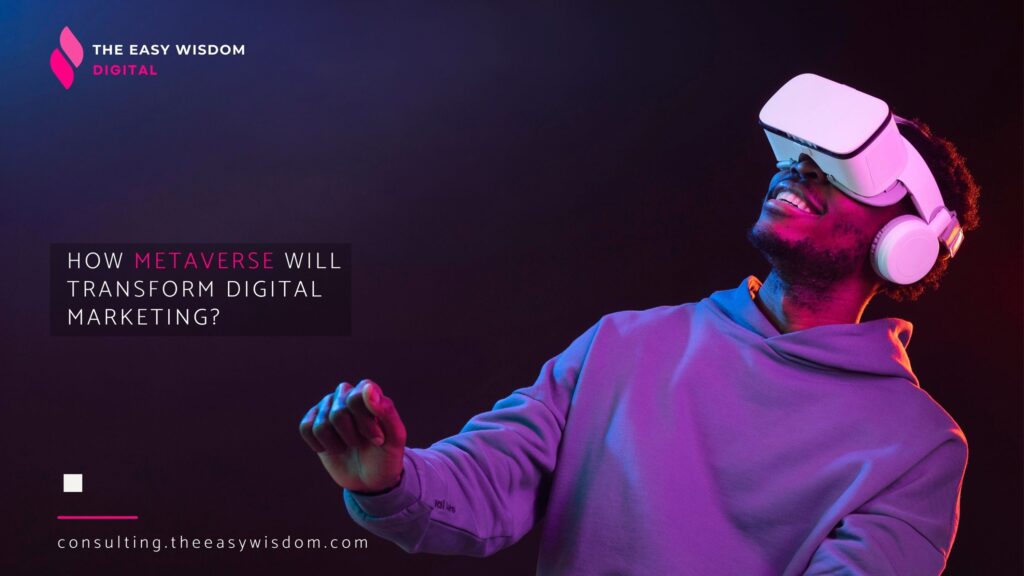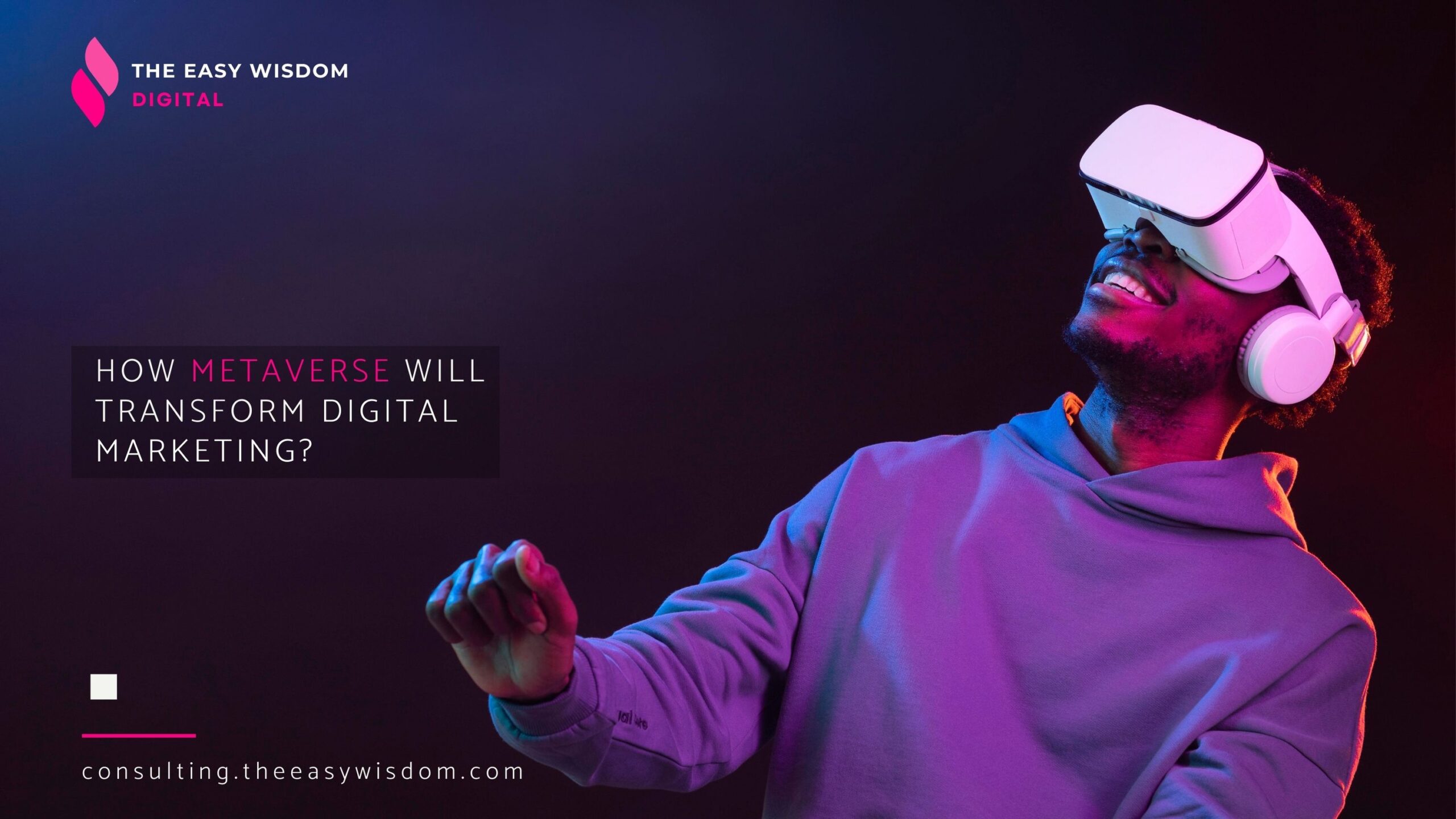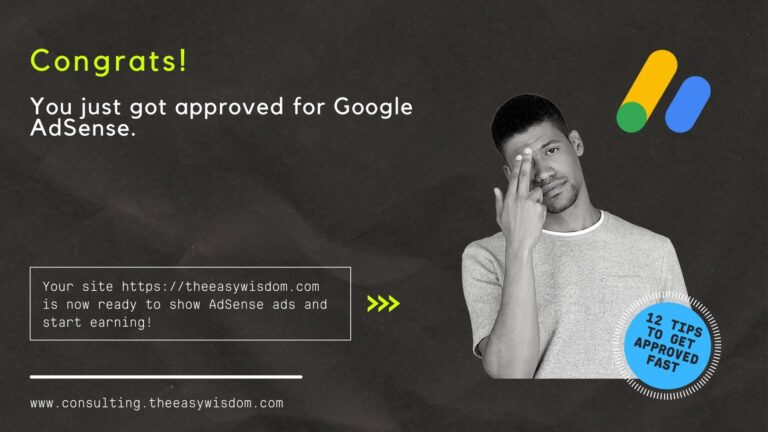Once in every ten years, there comes something that disrupts the status quo and transforms the marketing industry. While change is inevitable, those who adapt to the change emerge out as the winner. The companies that anticipate the change and accommodate accordingly reap the real benefits of first-mover advantage. And one such change that will challenge the status quo is metaverse. So what is metaverse, and how digital marketing in metaverse will look like? Let’s find out!
What is Metaverse?
Metaverse will be a new virtual world where the users live in a new digital world, interact and engage with each other, with the help of multiple elements of technology such as augmented reality, artificial intelligence and virtual reality. Metaverse is a way for people to blend virtual and real-life by seamlessly integrating both the two. It will be characterized by the social presence where you will feel that you are right there with another person, no matter how physically far apart you all are. Another striking aspect of the metaverse, as conceived by Facebook, is the ability to teleport instantly as a hologram. For example, you can be at your office without an actual commute, attend a concert with your friends, or attend your office meeting in the boardroom. And it all can be done by the comfort of sitting at your home.
In current times, metaverse refers to an ecosystem in which the users interact with each other as avatars. Metaverse functions in a digital environment but maintains a few ‘real’ aspects like personal identities, monetary systems, and familiar products and services. There are few popular avatar-based games like Fortnight and Roblox that are the biggest metaverses today. These platforms offer the brands an opportunity to advertise their services and products in a way that is not possible in the actual world.
However, the next question is how will metaverse be made possible? Various devices like augmented reality (AR) glasses and virtual reality becoming fully immersed will make it possible. Do not forget that ultra-fast broadband speeds will rule the show.
While the name metaverse is not new and finds a mention way back in 1991, the concept has come to life with the rebranding of the Facebook company as Meta.
How are the brands advertising in the Metaverse?
If you are a digital marketer, you want to know what are brands currently doing on metaverse, and how these brands are advertising on these avatar-based games. Let us have a look!
A few examples of marketers advertising their products in the metaverse are Gucci, Vans and Nike. Vans, for example, created a virtual skatepark in the avatar-based gaming platform Roblox. Here the players earn points and redeem them at a virtual store to customize their avatars. This skatepark had more than 48 million visitors as of the end of 2021.
There are other sports lifestyle brands like Nike that have partnered with Roblox. These brands have started with interactive advertising, where they have created a blended experience that varies as the user moves through the game. This has made the advertisements come to life. Here is an example of how Nike has created Nikeland on Roblox to come up with an innovative way of marketing its brand.
Luxury brands like Gucci have also tied up with Roblox and devised virtual Gucci Garden to give an immersive multimedia experience. Gucci Garden on Roblox virtually complements the real-world experience that they created in Gucci Garden, Florence, Italy. Virtual Gucci garden space was open for everyone on Roblox for two weeks only.
These are three examples of how metaverse has opened endless opportunities for brands and digital marketers to engage more creatively with people on virtual platforms. And these brands are certainly way ahead of the competition.
What will people do in the Metaverse?
So the next question for all the digital marketers is to first understand, what will people do in the new universe as contemplated by Facebook? People will be able to practically do everything that they do in the real life. But it will have an extra flavour of immersive virtual reality.
Metaverse will touch everything like entertainment, travel, work, gaming, trade and commerce, to name a few. So if you want to meet your friend in NYC, you need not buy an airline ticket and travel. Just put on your VR headgear, and meet your friend in a concert happening in NYC digitally, listening to your favourite singer.
Metaverse will make it possible for you to make your own digital life. You can have your own car, house, clothes and friends from all around the world in the digital world. Virtual digital offices will make it possible for you to hold review meetings with your co-workers in the war room from your home.
The metaverse is based on such immersive experiences. It replaces the flat 2-D (two-dimensional) world of the web with a 4-D (four-dimensional) one. Brands are already flocking around the metaverse as it presents an opportunity to influence the entire customer journey. It allows the brands to reach their audiences in innovative ways while enabling them to drive brand awareness and ultimately helping them make purchases, all in a streamlined cohesive experience.
Metaverse is a huge project, and many leading companies like Microsoft, Facebook, Roblox and Epic are investing in building their own metaverses.
Digital Marketing in Metaverse: How will Metaverse Transform Digital Marketing?
1. Consumer crave experiences and metaverse will make it possible
Consumers today are tired of advertising clutter dominated by static displays, banners and video ads that dominate the online media. Now consumers are craving rich and immersive experiences. They want to play role in defining your brand, speak out and share their experiences when they engage with your brand. Metaverse, by its nature, makes it possible by replacing the traditional 2-D online world with a 3-D or 4-D experience and allows brands to provide the consumer with a more rich and immersive experience while advertising their products or services.
2. Metaverse makes it possible to drive the entire customer journey
In the world of digital marketing channels like search engine marketing and social media marketing cater to just one part of the customer journey. For example, search engine marketing identifies and targets mid-to-low funnel prospects who are in evaluation to decision-making stages. But it is not really tapping the customers at the brand awareness stage and not shaping their perception. Social media marketing, on the other hand, identifies and targets top of the funnel prospects and is good at driving awareness. Although, with the advent of social e-commerce, social media marketing is also able to drive conversions.
Metaverse, on the other hand, presents brands with the opportunity to affect the entire customer journey by engaging with them and giving them a more cohesive experience.
3. Metaverse takes co-creation of the content to the next level
Marketers and brands have been aspiring to involve consumers in advertising by co-creation of user-generated content. It is their dream to have consumers create, share and engage with content featuring their brand. But it is easier said than done and is a very challenging task to encourage the co-creation of content that feels authentic, relevant and engaging.
Metaverse enables the brands to collaborate with the consumers to co-create content in a way that seems authentic and meaningful. As the metaverse is coming to life, the co-creation of the virtual environment, avatars and experiences are defining a new world of advertising and user-generated content.
4. Metaverse makes an effective representation of diversity and inclusion possible
As per the market research conducted by Meta, it was found that more than 70% of consumers expects the brands to bring more diversity and inclusion to marketing campaigns and online advertising. The survey also reported that a majority (>50%) of consumers do not feel fully represented in online campaigns.
However, in the metaverse, brands have the opportunity to create their own experiences and make every user the star of the show by integrating their brand into these experiences. Clothing companies, for example, can enable the users in metaverse to try the latest looks and wear whatever they want without inviting judgements. If the users like their new look, they can share it with their friends, who may then engage with the content. Rather than going for celebrity endorsement, brands can allow those who feel underrepresented to represent them directly by featuring themselves in the brand experience itself.
5. Metaverse will fuel the growth of virtual influencers
Brands are spending a huge share of their marketing budget on influencer marketing and some of it is expected to be spent on virtual influencers. As of today, there are approximately 150 virtual influencers, and this number is ever-growing.

For example, meet Candy-Prada’s virtual influencer. She is a computer-generated avatar dressed from top to toe in Prada and created to promote the Prada fragrance collection. Or meet the sensational Daisy- virtual influencer launched by Yoox (an online luxury discount site). Daisy was featured in various campaigns by Calvin Klein and Tommy Hilfiger. You may also love to meet Maya, a virtual influencer by sports lifestyle brand Puma.
Metaverse will fuel the growth of these virtual influencers in the coming time.
6. Metaverse will make digital campfires the future of digital marketing
Social media challenges and viral trends like the ASL ice bucket challenge successfully capture attention, but their impact is short-lived, especially in the era of Tik-Tok and YouTube shorts trends. So how shall brands create more engaging and relevant experiences? Today’s generation (Gen Z to be very specific), is more likely to participate in conversations happening on smaller and more intimate platforms like Reddit and Roblox. And these platforms are known as ‘digital campfires’ as coined by Harvard Business Review (HBR).
Digital campfires are platforms where smaller and intimate conversations happen between a relatively small group of people who share the same interests. There are three categories of digital campfires:
- private messaging
- micro-communities and
- shared experiences or a combination of all the three.
As per HBR, these digital campfires will be the future of marketing for modern audiences. As per the data, younger audiences are moving from large social media networks like Facebook and Instagram toward small platforms that offer them closed space, meaningful, intimate and non-judgemental spaces.
These popular social media platforms have resulted in a shorter attention span coupled with cluttered ad targeting. Therefore, it is becoming more expensive to reach and difficult to engage with the target audience on these platforms. Digital campfires help digital marketers to forge deep and meaningful conversations with the target audience. The brands can give shared experiences to users in immersive virtual worlds or metaverses.
7. Sensory advertising is the future, and metaverse will make it possible
There is a growing indifference towards advertising, and it is true, especially for younger audiences. As per research, approximately 84% of users skip advertisements. Also, most advertisements are designed to appeal to eyes and ears. But in the future, brands will need to appeal to five senses in order to break the clutter and give a totally immersive experience. Again, metaverse will be the solution to make this possible.
8. Metaverse and virtual marketplaces
It is no news that the younger generation is spending money on the virtual marketplace on metaverse platforms like Roblox. In the past, making an online payment made people nervous, but now times have changed. Users are now spending real money on buying objects that only exist in the virtual world.
As per research by voxburner.com, 65% of Gen Z users have spent money on virtual items such as accessories for avatars. Gen Z dominates the metaverse. In the US they have a spending power of $143 billion, and this spending is expected to grow by leap and bounds. As a digital marketing strategist, if you want to perfect this game and get ahead with this audience, you need to think out of the box. For example, luxury fashion brand Balenciaga created its own video game to showcase its recent collection.
Six tips for Metaverse Digital Marketing Strategy
1. Insert yourself natively within the platform
By its nature, advertising is intrusive and can get annoying. Howsoever, if you insert yourself naturally in the context and the platform, it will allow you to engage with the users interacting on metaverse without destroying the customer journey. This is called native metaverse marketing.
For example, native in-game advertising is one way to go about it. Various companies like Coca-Cola, Nike, Volkswagen, Subway, Unilever, Morris Garage, etc. have billboards within the gaming arena in the video games. As per the in-game advertising platforms like Bidstack, immersive in-game native advertising campaigns enhance the game realism by 95% and increase the purchase intent by 12%.
So if you are a digital marketer, you can use such platforms working in the field of immersive in-game advertising campaigns in the form of virtual billboards in digital sports stadiums, banner ads, etc.
2. Imitate real-life marketing in the virtual world
As a digital marketer, you can replicate your real-life marketing campaigns in the virtual world of the metaverse. It is a natural and authentic way of advertising your brand to users.
A perfect example of this is Deliveroo. This online food delivery company deployed virtual riders within the game for deliveries. The players were delighted to receive surprise deliveries and promo codes that they can apply in real life. Within the first hour alone, Deliveroo’s in-game marketing campaign yielded a record-breaking engagement. Another brand Hellmann’s (a mayonnaise brand) used an in-game marketing campaign to further its cause of reducing food waste. The company created a virtual island and invited the users to donate virtual currency for a cause. As a result, Hellmann’s raised funds that it donated to food waste charities in real life.
3. Create merchandise shelves for digital avatars
In the online virtual world, avatars represent people, and hence online identities matter a lot. As per the research, users spend money to buy avatar merchandise to customize the looks or equip their avatars with new features. Like in the real world, people in 3D and 4D environments spend a lot of money on self-expression.
As a digital marketer, you can retail virtual merchandise and sell it to avatars interacting on the metaverse. Fashion, sports and lifestyle brands are taking advantage of it. One example is how Gucci sold its digital bag on the Roblox platform for $4k. Can you beat it?
4. Launch and establish your virtual store or island
Another potent strategy to drive awareness and consideration in the metaverse is to open your own virtual venues such as a virtual store, island or museum. Once you establish your virtual venue, it helps you build an emotional connection with the users. For example, Fila built its own shop in a game and offered guided tours to avatars. Luxury fashion house Ralph Laurent established their experience store in the virtual world to drive engagement.
5. Create and deliver immersive experiences
Brands that focus on creating and delivering experiences gain more popularity and loyalty than those that don’t focus on experiential marketing. Here are a few examples you can use to create immersive experiences in metaverses:
A. Live concerts
Live concerts like music events allow users to interact and engage with your brand. For example, The Weekend band performed a live version of their songs in digital formats on Tik-Tok. The real-time comments and fireworks appeared in the background of the digital performance. Many digital live concerts are happening on Roblox and Fortnite and as a brand, you can choose to run your own virtual live concerts.
Here is a YouTube video of a virtual concert of Travis Scott in association with Fortnite called: Astronomical (Full Event Video). It has 178,104,096 views and still counting.
B. Interactive live events
As a brand, you can drive massive live events and stream them 24/7. This helps drive engagement as involving audiences in your concert can drive massive growth.
C. Use advergames to create buzz
Another way to give an immersive experience to your users who are interacting on metaverse is to use advergames. Advergames are sort of ads in the form of games and can create a lot of buzz for the brand. When you integrate your brand in a game, the users discuss the game and your brand as well. One very beautifully executed advergame campaign is that of New Zealand tourism. It is an adventure game that allows users to visit major tourist sites in New Zealand in a virtual world.
6. Offer digital collectables in the Metaverse
Humans by nature are collectors, and this holds on metaverse too. In the virtual world, these collectables make use of non-fungible tokens (NFTs). It means that the ownership of digital collectables (music, accessory, clothes or art) is protected by the way of encryption and can’t be sold until the original owner sells them to another user. NFTs thus blend directly in metaverse trade and commerce. They make use of blockchain technology that guarantees total ownership of the products and can be sold and purchased without any intermediary in between. Analysts say that NFTs have the potential to be the largest part of items purchased and sold on metaverse. Being aware of this trend is a must for all digital marketers.
Brands like Budweiser make use of NFTs. In fact, Budweiser has seen the value of its NFT has gone up to $20,000. These collectables give collectors the feeling of exclusivity. Luxury watch company Longines, for example, listed one of its watches for 45 limited-edition NFTs points. Adding to this artists and content creators are opening new possibilities to accentuate NFTs popularity.
These are the six best strategies for digital marketing in metaverse!
See you in the Metaverse!
Adapting to the changes and keeping abreast of the latest trends in the economy is essential to all digital marketers. Metaverse is an excellent opportunity for brands and digital marketers to be innovative and creative. Digital Marketers who will be the first movers will be in the best position to capitalize on metaverse and make the most of it.
So are you ready with your digital marketing strategy specially curated for the metaverse?
If you like this article on ‘digital marketing in metaverse,’ do share the same with your network! If you have some more thoughts about digital marketing in metaverse and how metaverse will transform digital marketing, do mention the same in the comments section below.




